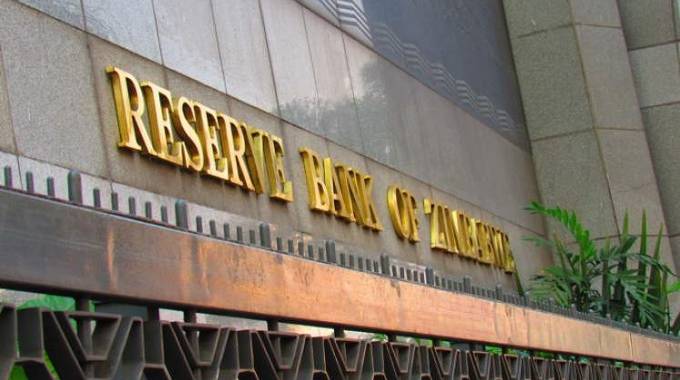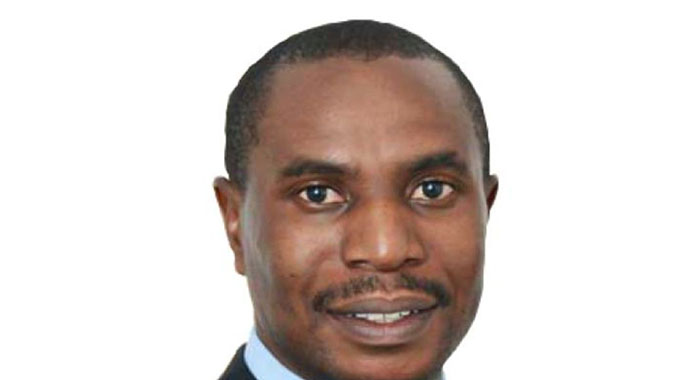EDITORIAL COMMENT : Impossible to align exchange rates

The Reserve Bank of Zimbabwe under its present policy is allowing exporters to retain an average of 60 percent of their foreign currency earnings, without any time limits as to when they use or sell that currency, but insisting that they sell, at the prevailing auction rate, the other 40 percent as soon as they receive it.
At the same time the Reserve Bank is starting to even out the percentages in each sector so that the 60-40 ratio is not just the average, but also the actual ratio that is used by almost everyone.
This has seen tobacco farmers move up from their previous 50 percent retention to the standard 60 percent, on their value added, that is what they get after their inputs provided on credit have been deducted.
The merchants will also, presumably, be retaining the 60 percent on their value added, what they get after paying off the farmers and after they have done the initial processing, sorting, grading, storing and dispatching, a set of processes that can in the end double the value of the crop.
All this seems fair, but there are a couple of problems and misconceptions. One problem that has emerged in the rich tobacco areas of Mashonaland Central is illegal side marketing, people wandering around with lorries buying for cash at around half price any tobacco they can persuade a farmer to sell.
Apparently they plan to sell this at the auctions, presumably pretending to be a real large scale farmer who has done self-financing.
Side marketing has never really been an issue in tobacco, with the tight contracting system supervised by the Tobacco Industry and Marketing Board (TIMB), which licenses farmers, merchants and auction floors.
The TIMB now needs to do the detective work and ensure that anyone selling tobacco, either on the auction floor or direct to a merchant, actually grew it themselves.
And possibly needs to bring in other authorities to prevent exports that do not come from honest merchants to ensure that a number of tonnes of Zimbabwean tobacco are not labelled as Malawian, or Zambian or Mozambican tobacco after being smuggled over a border.
All this examination of paperwork and checking it against what is on the databases is a nuisance, but a necessary one.
But by killing the markets for the cheaters, the overwhelming majority who operate legally are both protected against the middlemen, and both farmers and merchants deserve that protection, and can continue to grow the industry using the system that has done so much to not just revive the industry, but actually produce harvests well in excess of the largest harvests we saw when a couple of thousand of estate owners dominated the business before land reform.
The second issue is the misconceptions arising from what many see as a dual exchange rate, and what farmers also see as profiteering among some suppliers who manipulate the rates to profiteer.
Tobacco farmers were hit last year because of the fixed official rate when many were delivering, with the auctions only starting and setting market related rates when a good chunk of the tobacco had already been delivered and sold. So not unnaturally they wanted a higher retention ratio. This year that problem does not arise; they get the auction rate when they sell for the 40 percent that they are paid in local currency.
Farmers complain that suppliers of machinery and inputs, and other things that a successful farm needs like cement for better housing and new barns, use the black market rate.
If suppliers are doing this they are breaking the law. Almost all these essential and useful items have their foreign currency components funded via the auctions, as raw materials, consumables, chemicals and machinery.
Investigations are already in progress to ensure that successful bidders on the currency auctions price their resulting goods and services using a cost formula that feeds in auction rates.
These need to be intensified and our tobacco farmers deserve a bit of priority when targets are chosen for what amounts to an audit.
It might be that the farmers are just complaining about prices being higher than last year, with the suppliers honest, or there might well be some suppliers figuring out how to boost margins illegally. But farmers, and the rest of us, would like to know.
This de facto dual exchange rate causes confusion in many other circles, including regrettably among people with economic degrees who press for policies that will produce a single exchange rate.
The main problem that so few understand is that the two exchange rates cover different sources of foreign currency, different spending patterns and a vastly different system of margins.
The auctions are fed largely by the 40 percent of export earnings that exporters must sell, but not everyone can buy on the auctions. Bidders have to have exhausted their own foreign exchange before they bid, and are only allowed to bid against invoices for goods and services on the two priority lists.
However, all valid bids above a set minimum are accepted.
The black market is supplied by currency well outside the control of the Reserve Bank, largely diaspora remittances. End-user buyers can use that currency for whatever they like: luxuries, stuffing into trunks, even buying petrol.
And the fairly sophisticated business of concentrating tens of thousands of small remittances into big blocks of cash requires a string of dealers, each of whom takes a cut. The gap between street buying price and final selling price is thus large, as much as 25 percent.
All this generates a premium, since even if all dealings were in an official system, the remittances going through bureaux de change where margins and prices can be legally higher, there would still be a black market for those who want to carry suitcases of money out of the country and those who do not want the authorities to be able to check just what they have bought if they are into smuggling or buying illegal goods, like drugs.
Even if the official rate was reset as the black market rate, there would be a new black market rate. That simplistic system cannot work. What can be done is what has been done, to use a market-set rate for the official rate, so it is a real rate.
This makes it basically impossible to align the rates. If the auction rate rose, then the premium would still be there.
The Reserve Bank and Government have done a lot to drastically reduce speculation within the black market, thus narrowing the premium, but cannot kill it unless they criminalise private possession of foreign currency and hunt down and jail the holders.
The only methods open to the authorities are what they are doing now, dampening down the black market and trying to move it into the legal bureaux de change, succeeding to a degree if you look at supermarkets with bureaux licences, while allow the auctions to set market rates for the bulk of the foreign currency that is spent on what the country needs. This is a process that is working, but which takes time.
Meanwhile, as farmers and everyone else wants, lets us intensify efforts to catch the cheats who buy at auction rates and sell at black market rates.










Comments